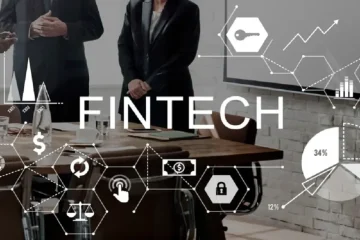The 21st century brought numerous innovations to the world, from self-driving cars to widespread cloud computing. However, one of the most impressive technological advancements involves blockchain, a distributed, decentralized, and transparent database that can handle endless blocks and information. Bitcoin’s creator, Satoshi Nakamoto, introduced the blockchain concept, which established a standard for upcoming digital assets and crypto projects.
Since then, numerous unique blockchains have appeared on the market, such as Ripple, the digital payment network and protocol that operates uniquely, and its native cryptocurrency, XRP, is renowned for its lack of mining requirements and low-cost transaction fees. Hence, if we were to make an XRP price prediction, we can see how its potential will increase its rates by at least 5% shortly.
This is only one of the numerous examples of blockchain technologies that leverage cryptocurrencies, as the two must be interconnected to maximize emerging innovation. So, here’s how blockchain is changing the world.
Blockchain improves data collection
The current method of record-keeping includes cloud computing, one of the best and safest current solutions for managing, sharing, and maintaining data online. Yet, this system leverages, most of the time, a centralized governance, which requires compliance and significant cloud costs. In time, these issues lead to data security and privacy, revealing system vulnerabilities to bad actors.
On the other hand, blockchain can solve all of these challenges straightforwardly. By using a distributed ledger, companies can record transactions in multiple locations on the blockchain that no one can modify once entering the network. Those who must access the information can do so in a fully transparent mode, and transactions recorded are immutable and stamped by day and time.
When it comes to recording and maintaining data, blockchain has proved to be considerably beneficial in the following industries:
- Healthcare can use blockchain to maintain the privacy of patient’s medical records while assuring that companies sharing information are trustworthy;
- Fitness businesses can collaborate with healthcare providers by accessing patient’s data, such as hours of sleep, and improving their products and services;
- Education helps educators and students as well to share and communicate test scores, diplomas, and similar documents digitally;
Blockchain improves finance
Our current financial system is based on a society that has just established the basis of industrialization and has been considerably helpful for consumers and companies as well to flourish. However, as dynamics change, countries face issues with heightened inflation and massive interest rates that hinder people’s financial possibilities.
That’s why blockchain can improve the sector in many ways, especially by leveraging banks’ systems to improve transaction options. The term to describe this opportunity is FinTech, and it involves technologies like artificial intelligence, chatbots, and biometric authentication that could take finance to the next level.
FinTech apps that use blockchain technology remove the need for a third party to process transactions and ensure high-security levels through solid encryption. On the other hand, FinTech has many different use cases, such as crowdfunding platforms that provide an approachable interface and records and charts through which investors can improve their contribution to NGOs.
By far, the best thing FinTech can do is improve insurance by enhancing services through IoT, software, and data science. CRM software or web and mobile insurance software can fill in the gaps of current issues of digital disruption and regulatory compliance.
Blockchain can renew the entertainment industry
Media and entertainment suffered massive changes since the era of the internet started, and we’ve been witnessing how social media apps and online communities got more creative at entertaining consumers. Songs, movies, and online games are more exemplary than ever, but technological disruptions and data privacy concerns make the sector dangerous for customers.
Hence, companies started using blockchain to better control how these ecosystems grow and collaborate with each other. First, it can help create new revenue streams for developers and artists, as was the case with NFTs (non-fungible tokens). These digital artwork pieces appealed to a specific audience and started the era of technologized art. It also transformed how rights are embedded in a creator and helped combat piracy.
On the other hand, a few companies started creating blockchain-based social media apps and platforms that leverage cryptocurrency as a way to incentivize users who contribute to growing and safeguarding the environment. Read.cash is an example of a blogging platform that helps you support your favorite bloggers with Bitcoin. At the same time, Minds.com is the new decentralized Facebook that’s open-source and rewards users for creating content on the platform.
Blockchain can update cyberspace
Consumer safety in online environments has always seemed a priority to all companies, but only a few have truly prioritized it. Some of the businesses with the most significant data breaches and user information jeopardization include Twitter, LinkedIn, and Dropbox, which are massive corporations that deliver products and services on a global scale.
Ensuring online safety for immense companies can be indeed difficult, especially when considering the complexity of online addresses and customer demands. However, trends and requirements have changed considerably, and it’s time for blockchain to step in and protect all users of the network.
Blockchain security is backed by a particular system in which every data block has a unique address whose link is secured by data encryption. Most blockchains use nodes to confirm and validate each block, and since nodes are spread globally, entering the system is close to impossible. Even when finding such a vulnerability, controlling an entire blockchain as a single entity is not feasible.
Do you think the world is ready for blockchain?
Technologization and development have brought us blockchain systems that are the safest and most efficient in managing data and information. Since we’re facing an era with overwhelming data breaches and attacks, companies could start leveraging blockchain to protect customers and improve their services through decentralization, transparency, and traceability features. Although blockchain is still in its early stages, it has immense potential to change the world and make it a better place.




